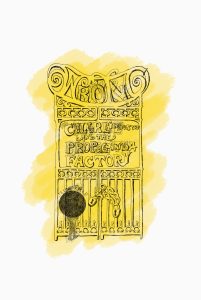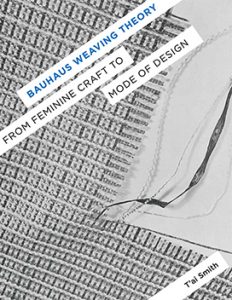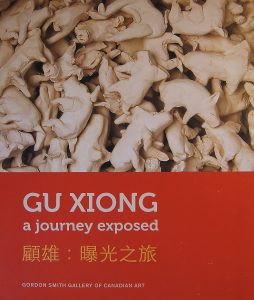MFA
Primary Advisor
Dana Claxton
Secondary Advisor
T’ai Smith
Edited by Amelia Jones and Erin Silver
Otherwise: Imagining Queer Feminist Art Histories is the first publication to address queer feminist politics, methods and theories in relation to the visual arts, including new media, installation and performance art. Despite the crucial contribution of considerations of “queer” to feminism in other disciplines of the humanities, and the strong impact of feminist art history on queer visual theory, a visible and influential queer feminist art history has remained elusive. This book fills the gap by offering a range of essays by key North American and European scholars, both emerging and renowned, who address the historiographic and political questions arising from the relationship between art history and queer theory in order to help map exclusions and to offer models of a new queer feminist art historical or curatorial approach.
For more information: https://manchesteruniversitypress.co.uk/9780719096419/

The Culture Industry and the Propaganda Factory is a complete rewrite of Roald Dahl’s classic book Charlie and the Chocolate Factory, reimagining Dahl’s book as an absurdist fairytale overlayed on top of and intertwining with Dahl’s original illustrated narrative. When Charlie and the Chocolate Factory was first published in 1964, it was severely criticized by the NAACP and others for its depiction of the workers at Willy Wonka’s factory as “black pigmies from Africa.” Dahl eventually sympathized with these critiques, revising the book in 1973 and recasting the workers as the Oompa Loompas the book is now well known for.
Using this literary history as a point of reference, Starling imagines four subsequent revisions, each less and less able to cope with what he sees as the “unknown trauma” Dahl’s second edition attempted to repress. In our version (Starling’s third revision), the story has become a tale of the journey of five children to the Culture Industry’s “Propaganda Factory.”
For more information: https://new-documents.org/books/the-culture-industry-and-the-propaganda-factory

The Bauhaus school in Germany has long been understood through the writings of its founding director, Walter Gropius, and well-known artists who taught there such as Wassily Kandinsky and László Moholy-Nagy. Far less recognized are texts by women in the school’s weaving workshop. In Bauhaus Weaving Theory, T’ai Smith uncovers new significance in the work the Bauhaus weavers did as writers.
From colorful, expressionist tapestries to the invention of soundproofing and light-reflective fabric, the workshop’s innovative creations influenced a modernist theory of weaving. In the first careful examination of the writings of Bauhaus weavers, including Anni Albers, Gunta Stözl, and Otti Berger, Smith details how these women challenged assumptions about the feminine nature of their craft. As they harnessed the vocabulary of other disciplines like painting, architecture, and photography, Smith argues, the weavers resisted modernist thinking about distinct media. In parsing texts about tapestries and functional textiles, the vital role of these women in debates about medium in the twentieth century and a nuanced history of the Bauhaus come to light.
Bauhaus Weaving Theory deftly reframes the Bauhaus weaving workshop as central to theoretical inquiry at the school. Putting questions of how value and legitimacy are established in the art world into dialogue with the limits of modernism, Smith confronts the belief that the crafts are manual and technical but never intellectual arts.
For more information: https://www.upress.umn.edu/book-division/books/bauhaus-weaving-theory

A Journey Exposed (2014) is a collection of artworks in which Gu Xiong uses repeated exposure of our memories to gain new insights, with the struggle between individuality and globalization as a central theme. Crushed Coca-Cola Cans symbolizes rebirth as the mass-produced can, in the process of being destroyed, finds a new life as a unique object. Garbage relates the act of garbage disposal to the cleaning and improvement of our inner self. Mass-produced Food beckons the viewer to question our consumerist reality and to create our own reality. Drowning alludes to globalization; globalizing ideas drown individuals, but by staying afloat we are subsequently maintaining our individuality amidst this globalization. Floating Pigs comments on the deterioration of the environment and implores the viewer to rebuild our environment through careful reflection and measured action.
For more information: http://guxiong.ca/en/solo-exhibition/a-journey-exposed/